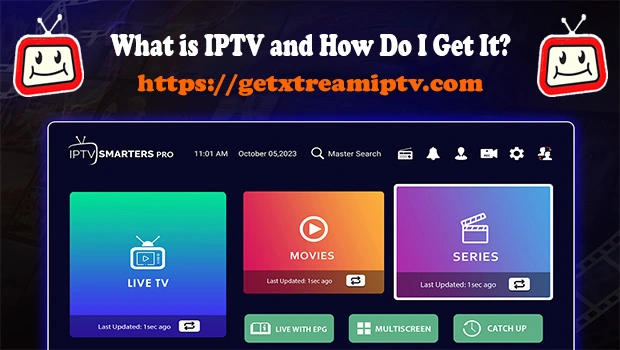Table of Contents
In the age of digital streaming, IPTV has emerged as a popular alternative to traditional cable and satellite television. But what exactly is IPTV, and how can you access it? In this guide, we’ll delve into the world of Internet Protocol Television, exploring its features, benefits, and how you can get started with it.
Understanding IPTV
IPTV Explained Internet Protocol Television (IPTV) is a method of delivering television content over the internet instead of through traditional satellite or cable providers. It allows users to stream live TV channels, on-demand content, and even record programs for later viewing, all through an internet connection.
How IPTV Works Unlike traditional television services, which rely on dedicated hardware like satellite dishes or cable boxes, IPTV delivers content through a broadband internet connection. Users can access IPTV services through various devices, including smart TVs, streaming boxes, smartphones, and computers, making it incredibly versatile and accessible.
Benefits of IPTV
- Flexibility: With IPTV, users have greater control over what they watch and when they watch it. They can choose from a wide range of channels and on-demand content, tailoring their viewing experience to suit their preferences.
- Cost-Effectiveness: IPTV often offers more affordable subscription options compared to traditional cable or satellite TV services, making it a budget-friendly choice for many consumers.
- High-Quality Viewing: IPTV providers typically offer high-definition (HD) and even ultra-high-definition (UHD) content, providing viewers with a superior viewing experience.
- On-Demand Content: In addition to live TV channels, IPTV services often include extensive libraries of on-demand movies, TV shows, and exclusive content, giving users plenty of entertainment options.
Getting Started with IPTV
Choosing an IPTV Provider When selecting an IPTV provider, it’s essential to consider factors such as channel selection, pricing, streaming quality, device compatibility, and customer support. Look for reputable providers with a track record of delivering reliable service and a user-friendly interface.
Setting Up IPTV Setting up IPTV is relatively straightforward. Depending on the provider, you may need to download and install their app on your chosen device or configure your IPTV service through a compatible streaming device or smart TV. Once set up, you can start exploring the wide array of channels and content available through your IPTV subscription.
Accessing IPTV Content Once you’ve set up your IPTV service, accessing content is as simple as launching the IPTV app or navigating to the provider’s website. From there, you can browse through channels, search for specific programs, and explore on-demand content libraries to find something to watch.
FAQs About IPTV
1. Is IPTV Legal? While IPTV itself is a legitimate technology, the legality of IPTV services can vary depending on the content they offer and how they obtain it. Some IPTV providers may offer pirated or copyrighted content illegally, so it’s essential to choose a reputable provider that adheres to copyright laws.
2. Can I Watch Live Sports on IPTV? Yes, many IPTV providers offer packages that include live sports channels, allowing viewers to watch their favorite games and events in real-time. However, availability may vary depending on your location and the specific channels included in your subscription.
3. Do I Need a High-Speed Internet Connection for IPTV? While IPTV can technically work with lower internet speeds, a high-speed broadband connection is recommended for the best viewing experience, especially when streaming HD or UHD content. Aim for a connection speed of at least 10 Mbps for smooth, uninterrupted streaming.
4. Can I Use IPTV on Multiple Devices? Yes, most IPTV providers allow users to access their service on multiple devices simultaneously, depending on the terms of their subscription. This means you can watch IPTV on your smart TV, smartphone, tablet, or computer, giving you flexibility and convenience.
5. How Does IPTV Compare to Cable and Satellite TV? IPTV offers several advantages over traditional cable and satellite TV, including greater flexibility, cost-effectiveness, and a wider range of content options. Additionally, IPTV eliminates the need for bulky equipment like satellite dishes or cable boxes, streamlining the viewing experience.
6. Can I Record Programs with IPTV? Many IPTV providers offer DVR (Digital Video Recorder) functionality, allowing users to record their favorite programs and watch them later at their convenience. This feature is especially handy for busy viewers who may not be able to watch live TV broadcasts.
Conclusion
In conclusion, IPTV offers a convenient and cost-effective way to access television content over the internet. By understanding what IPTV is and how to get started with it, you can enjoy a wide range of channels, on-demand content, and exclusive programming tailored to your preferences. Whether you’re a cord-cutter looking for alternatives to traditional TV services or simply seeking greater flexibility in your viewing habits, IPTV has something to offer for everyone.
